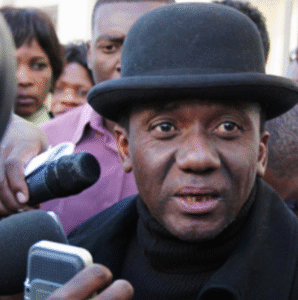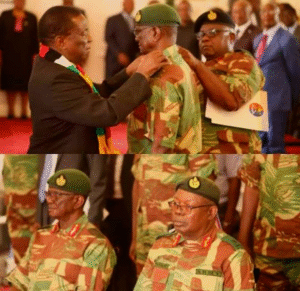New Report Unveils Zimbabwe’s CIO Funding Irregularities During Last Year’s Elections

In a groundbreaking revelation set to stir the political landscape, a new report by The Sentry – an investigative body focused on dismantling exploitative networks linked to conflict and corruption – has unveiled questionable financial activities involving Zimbabwe’s Central Intelligence Organisation (CIO). Slated for release tomorrow afternoon, the embargoed report details how the CIO’s undisclosed financial streams significantly bolstered the operations of Forever Associates Zimbabwe (FAZ) during the 2023 general elections.
The report by The Sentry, known for its rigorous investigations into kleptocracy and economic malfeasance across the globe, outlines a complex web of transactions that allegedly underpinned FAZ’s activities aimed at securing President Emmerson Mnangagwa’s and his party, Zanu PF’s, controversial re-election. According to the findings, these actions not only breached constitutional mandates but were also deemed illegal, casting a long shadow over the legitimacy of the election results.
This report is particularly significant as it follows closely on the heels of last week’s exposé by the same organization, which also targeted FAZ’s operations. The details emerging from the latest investigation draw on a mix of open-source intelligence and new data, focusing specifically on one CIO-linked company and its financial maneuvers during the election period. This entity, which has not been named prior to the report’s official release, reportedly channeled substantial sums to FAZ, thereby complimenting the CIO’s budget in a covert support of Mnangagwa’s campaign.
The findings are likely to resonate beyond Zimbabwe’s borders, especially given the reaction from the Southern African Development Community (SADC). The regional body has already expressed its dissatisfaction with the electoral process, rejecting the poll outcomes ostensibly tainted by the activities highlighted in The Sentry’s reports. This external disapproval underscores the gravity of the alleged electoral manipulations and their implications for regional stability.
The involvement of state intelligence in electoral processes is not a new phenomenon, but the scale and manner disclosed in this report are particularly alarming. By funding operations that fundamentally undermine the democratic process, the CIO appears to have overstepped its governmental mandate, operating more as a partisan tool rather than a national security organization.
For Zimbabwe, a country marred by political volatility and economic challenges, these revelations could trigger a critical reassessment of its electoral practices and governance. The international community, particularly bodies invested in African stability and democratic integrity, will find these details indispensable for future engagements with Zimbabwe. Furthermore, the report could catalyze a more concerted domestic demand for transparency, accountability, and genuine reform in the country’s political and electoral systems.
As the report’s public release approaches, stakeholders from various sectors are gearing up to analyze its contents and implications. Political analysts, opposition parties, civil society groups, and international observers are particularly keen on understanding the depth of the CIO’s involvement and its impact on the perceived legitimacy of the current administration.
The long-term effects of these disclosures will depend significantly on the response from both local and international actors. Will there be a push for a thorough investigation? Will there be calls for electoral reforms or even sanctions against individuals or entities involved? These questions loom large as Zimbabwe grapples with the fallout of a report that could redefine its political trajectory and influence the broader discourse on democracy and governance in Africa.
In conclusion, The Sentry’s latest findings provide a stark reminder of the intricate and often hidden forces that can shape political outcomes. For Zimbabwe, addressing these issues head-on is not just about restoring electoral integrity but also about rebuilding trust in its institutions – a critical step towards achieving lasting peace and stability.



